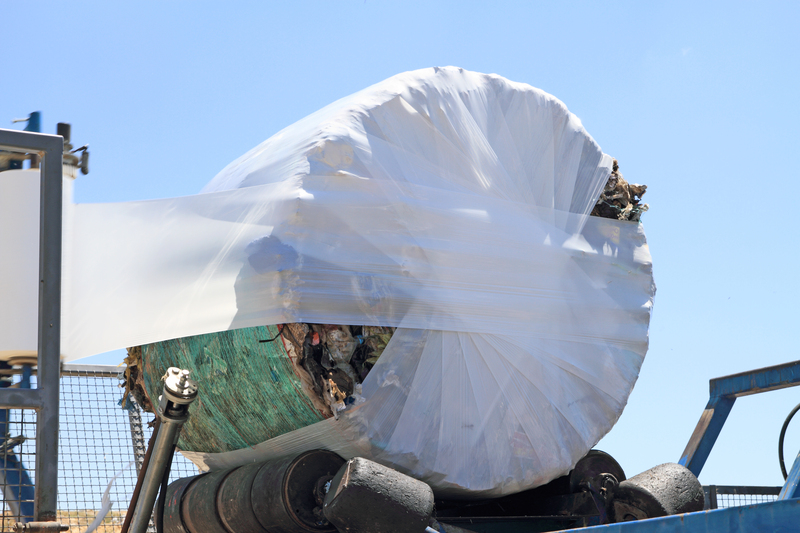Ways to Effectively Reduce Waste to Landfills
Waste management is an escalating concern for communities, governments, and environmental advocates across the globe. Striking a balance between modern consumption patterns and sustainable practices is essential to mitigate the adverse impacts of waste on our planet. This article examines the numerous ways we can effectively reduce waste being sent to landfills.
1. Embrace the 3 R's: Reduce, Reuse, Recycle
The 3 R's are fundamental principles in waste management and sustainability. By integrating these practices into our daily lives, we not only reduce the volume of waste sent to landfills but also conserve natural resources and energy.
- **Reduce:** This involves minimizing the amount of waste we produce. It's about conscious consumption and purchasing items that you genuinely need. Opt for products with minimal packaging, buy in bulk to reduce packaging waste, and avoid single-use plastics.
- **Reuse:** Before discarding items, consider if they can be repurposed or used in another way. For instance, glass jars can be reused for storage, and old clothes can be turned into cleaning rags.
- **Recycle:** Recycling converts waste into reusable material. Learn about and participate in your local recycling programs to ensure that paper, plastics, glass, and metals are properly recycled.

2. Composting Organic Waste
Composting is a natural process that turns organic waste such as food scraps and garden waste into valuable compost. This process reduces the amount of organic matter that ends up in landfills, where it would otherwise contribute to methane emissions - a potent greenhouse gas.
- **Home Composting:** Home composting is a practical solution for reducing organic waste. Compost bins are now widely available, and a small effort in setting one up can yield rich compost for your garden.
- **Community and Municipal Composting:** Many municipalities offer community composting programs. These programs often accept food scraps, yard waste, and even certain paper products, turning them into compost that can be used in community gardens or sold to local farmers.
3. Support Zero-Waste Initiatives
Zero-waste living aims to significantly reduce the amount of waste that individuals send to landfills. This approach encompasses making thoughtful choices in every aspect of consumption and disposal.
- **Bulk Buying and BYOC (Bring Your Own Container):** Zero-waste stores often sell products in bulk, encouraging customers to bring their own containers. This minimizes packaging waste.
- **Minimalist Lifestyle:** Adopting minimalism can also lead to reduced waste. By choosing quality over quantity and avoiding unnecessary purchases, the overall waste generated is drastically decreased.
4. Engage in Upcycling
Upcycling involves creatively reusing materials and products destined to become waste. It differs from recycling by adding value to an item, often resulting in a product of higher quality or utility.
- **DIY Projects:** Numerous DIY upcycling projects are available online for inspiration. These projects range from turning old furniture into new pieces to converting used plastic bottles into decorative planters.
- **Support Upcycled Products:** There is a growing market for upcycled products, from fashion accessories to home decor. By supporting these products, we are encouraging the growth of sustainable businesses and reducing landfill waste.
5. Advocate for Extended Producer Responsibility (EPR)
Extended Producer Responsibility (EPR) is a policy approach that shifts the responsibility for waste management from consumers to producers. This encourages manufacturers to design products and packaging that are easier to recycle, have a longer life span, or can be returned and reused.
- **Consumer Advocacy:** As consumers, we can advocate for EPR by supporting legislation that holds companies accountable for the lifecycle of their products.
- **Choosing Responsible Brands:** By purchasing from companies that have implemented EPR practices or those that use sustainable packaging, we drive demand for better waste management practices at the production level.
6. Implement Waste Segregation at Source
Segregating waste at the source is an effective way to reduce the amount of waste that ends up in landfills. Proper segregation ensures that recyclable materials are not contaminated and can be effectively processed.
- **Household Segregation:** At home, set up separate bins for different types of waste - recycling, compostables, and general waste. Educate family members on the importance and methods of waste segregation.
- **Community Initiatives:** Communities can organize waste segregation programs and provide clear guidelines on how to sort waste. This collective effort can lead to a substantial reduction in landfill waste.
7. Participate in and Organize Clean-Up Drives
Community clean-up drives are an excellent way to manage waste and raise awareness about waste reduction. These drives not only help clean public spaces but also educate participants on the importance of reducing waste.
- **Local Engagement:** Join or organize local clean-up drives. This can be done in parks, beaches, and urban areas. The collected waste can then be segregated and properly disposed of or recycled.
- **Educational Campaigns:** Use clean-up drives as an opportunity to teach others about waste reduction. Distribute literature, give presentations, or invite speakers to discuss sustainable practices.
8. Utilize Repair Cafes
Repair Cafes are community initiatives where people gather to repair household items rather than throwing them away. These cafes provide the tools, materials, and expertise needed to fix various items.
- **Local Repair Cafes:** Visit local Repair Cafes to fix broken items such as electronics, furniture, and clothing.
- **Skill Sharing:** Consider volunteering at a Repair Cafe to share your repair skills with others, helping to reduce waste collectively.

9. Opt for Sustainable Packaging
Packaging waste constitutes a significant portion of landfill waste. By choosing products with sustainable packaging, we can significantly reduce this type of waste.
- **Biodegradable Packaging:** Choose products with biodegradable or compostable packaging.
- **Refillable Containers:** Opt for products in refillable containers to minimize packaging waste.
10. Educate and Engage
Education is crucial in the battle against waste. By educating ourselves and others about the impacts of waste and the ways to reduce it, we can collectively make a significant difference.
- **Workshops and Seminars:** Attend workshops and seminars on waste management and sustainable living.
- **Online Resources:** Utilize online resources, join forums, and participate in social media groups focused on waste reduction and sustainability.
In conclusion, reducing waste to landfills is a collective effort that requires individual, community, and institutional participation. By implementing practices such as the 3 R's, composting, supporting zero-waste initiatives, and advocating for EPR, we can significantly reduce the volume of waste heading to landfills. Engaging in upcycling, waste segregation, clean-up drives, Repair Cafes, and opting for sustainable packaging further contributes to this cause. Lastly, continuous education and engagement lay the foundation for a sustainable future, fostering a culture of environmental stewardship for generations to come.
